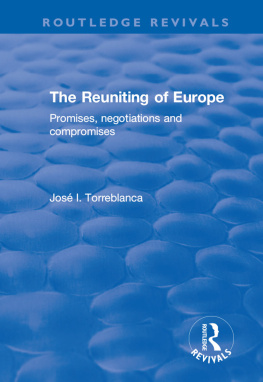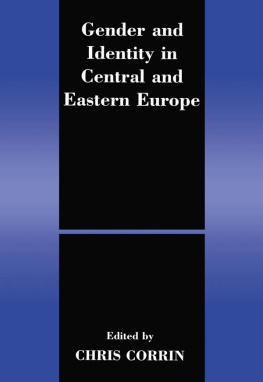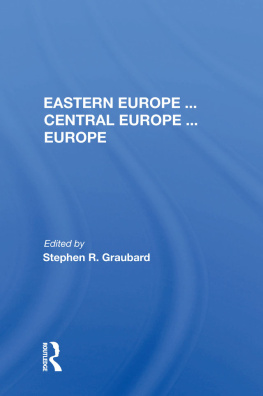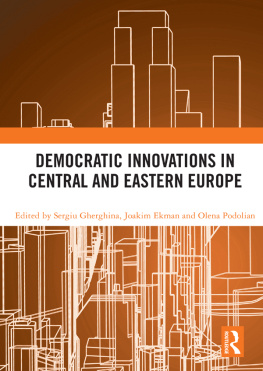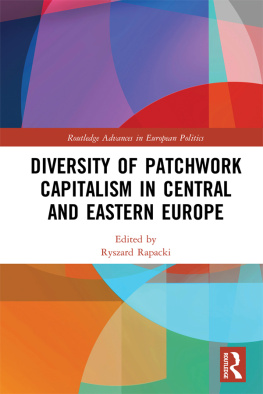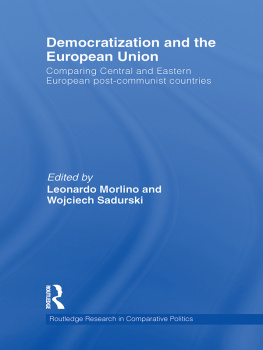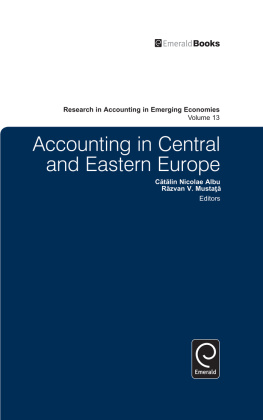THE REUNITING OF EUROPE
Al gran Vincent
que se march
al pequeo Vctor
que nos regal su sonrisa
y a Kattya
que siempre ha estado ah
The Reuniting of Europe
Promises, negotiations and compromises
JOS I. TORREBLANCA
UNED University and Juan March Institute, Madrid
First published 2001 by Ashgate Publishing
Reissued 2018 by Routledge
2 Park Square, Milton Park, Abingdon, Oxon OX14 4RN
711 Third Avenue, New York, NY 10017, USA
Routledge is an imprint of the Taylor & Francis Group, an informa business
Copyright Jos I. Torreblanca 2001
All rights reserved. No part of this book may be reprinted or reproduced or utilised in any form or by any electronic, mechanical, or other means, now known or hereafter invented, including photocopying and recording, or in any information storage or retrieval system, without permission in writing from the publishers.
Notice:
Product or corporate names may be trademarks or registered trademarks, and are used only for identification and explanation without intent to infringe.
Publishers Note
The publisher has gone to great lengths to ensure the quality of this reprint but points out that some imperfections in the original copies may be apparent.
Disclaimer
The publisher has made every effort to trace copyright holders and welcomes correspondence from those they have been unable to contact.
A Library of Congress record exists under LC control number: 2001091693
ISBN 13: 978-1-138-70142-7 (hbk)
ISBN 13: 978-1-315-21003-2 (ebk)
Contents
Many people and institutions have helped to make this book possible. Among the institutions, I would first like to thank the Juan March Institute in Madrid, where I was based between 1991 and 1997, first as a Masters and then as a doctoral candidate. The Institute has not only funded this research and provided the resources necessary for its realisation, but has also provided an exceptionally pleasant academic and personal environment.
Secondly, I want to thank the US-EU Fulbright Commission, the Institute for European, Russian and Eurasian Studies (IERES) at the George Washington University (GWU) in Washington D.C. and Michael Sodaro for the grant which allowed me to concentrate on this book during my stay in D.C. as European Union Scholar-in-Residence between January and May 1998.
Thirdly, my gratitude goes to the Universidad Nacional de Educacin a Distancia (UNED), where I have been based since 1999 as Assistant Professor, and particularly to the Department of Political Science and my colleagues there, who have not only encouraged the completion of this book but wholeheartedly supported my research on EU affairs.
Many people have contributed in various ways to make this book possible. Among them, Karl Kaiser, Vincent Wright, Ignacio Snchez-Cuenca, Philippe Schmitter and Jos Mara Maravall deserve special recognition not only because of their inspiring comments and suggestions but also because of the confidence they have always placed on my work. We will always miss Vincent Wrights passion for both life and work but I am sure that our best tribute to his memory is to continue sharing with him such passion.
My field work in the archives of the European Commission in the autumn of 1994 was made possible thanks to the cooperation of the Forward Studies Unit and the Direction for Central and Eastern Europe in DG I. I cannot but express my deepest gratitude to Jrme Vignon, Francisco Fonseca, Alan Mayhew and Vittoria Alliata, as well as to Rita, Monika and Joseph for approving my project and making the necessary arrangements for me to carry out research in Brussels. I thank also the library of the Deutsche Gesellschaft fr Auswrtige Politik (DGAP) in Bonn and the documentation centre of the European Commissions Delegation in Madrid for their cooperation. Equally, although my interviewees must remain anonymous, I would like to thank them all for their help and cooperation. I hope that after reading this they will feel that the valuable time they devoted to me was well spent.
An earlier version of this book was submitted as a Ph.D. to the Complutense University in Madrid in 1997 under the title The European Community and Central Eastern Europe (19891993): Foreign policy and Decision-making. Although both works have in common the evidence drawn from unpublished Community archives, I have since then further developed the theoretical approach, completely rewritten the introduction, thoroughly revised the original chapters and rearranged their presentation.
As it stands now, I believe the book offers a very detailed picture of how the EU arrived at the decision to enlarge eastwards and what were both the requirements and the limitations of this decision. As readers will see, the gap between rhetoric and reality in the EU eastern enlargement process, which has come to the surface with particular intensity between 1997 and 2000, coinciding with the negotiation of both Agenda 2000 and the Nice Treaty, can be traced back to the association policy of 19891991 and cannot be explained without looking in detail at how the EU arrived in 1993 at the decision to enlarge eastwards.
I conclude here with my gratitude to Justin Byrne for his patient correction of my English and UNEDs Vicerrectorado de Investigacin and the Juan March Institute for having financed this task. I also want to thank Frances Goldstone in Ashgate for an invaluable proof-editing job and all the editorial team in Ashgate for their support.
Madrid, June 2001
j.torre@mail.march.es / jtorre@poli.uned.es
ACP African, Caribbean, and Pacific States
Bull.EC Official Bulletin of the European Communities
CAG Conseil Affaires Gnrales
CAP Common Agricultural Policy
CCOO Comisiones Obreras
CCP Common Commercial Policy
CDU Christlich Demokratische Union
CEC Commission of the European Communities / European Commission
CECC Central European Cooperation Committee
CEECs Central and Eastern European Countries
CEFTA Central European Free Trade Area
CEI Central European Initiative
CES Comit Econmico y Social de las Comunidades Europeas
CET Common External Tariff
CFSP Common Foreign and Security Policy
CFP Common Fisheries Policy
CIS Commonwealth of Independent States
CMEA Council for Mutual Economic Assistance (also COMECON)
CN Combined Nomenclature
CNJA Centre National des Jeunes Agriculteurs
COCEGA Committee for Agricultural Cooperation in the European Union
COMITEXTIL Association of European Clothing and Textile Industries
COPA Confederation of Professional Agricultural Organizations
COREPER I Committee of Assistant Permanent Representatives
COREPER II Committee of Permanent Representatives
CSCE Conference for Security and Cooperation in Europe
CSU Christlich-Soziale Union
CSFR Czech and Slovak Federative Republic (also RFTS)
DAI Documents dActualit Internationale
DG Directorate General of the European Commission
DG I Directorate General for External Relations (until 1993)
DG I Directorate General for External Economic Relations
DG IA Directorate General for External Political Relations
DG I-D Division for sectorial commercial questions in DG I

